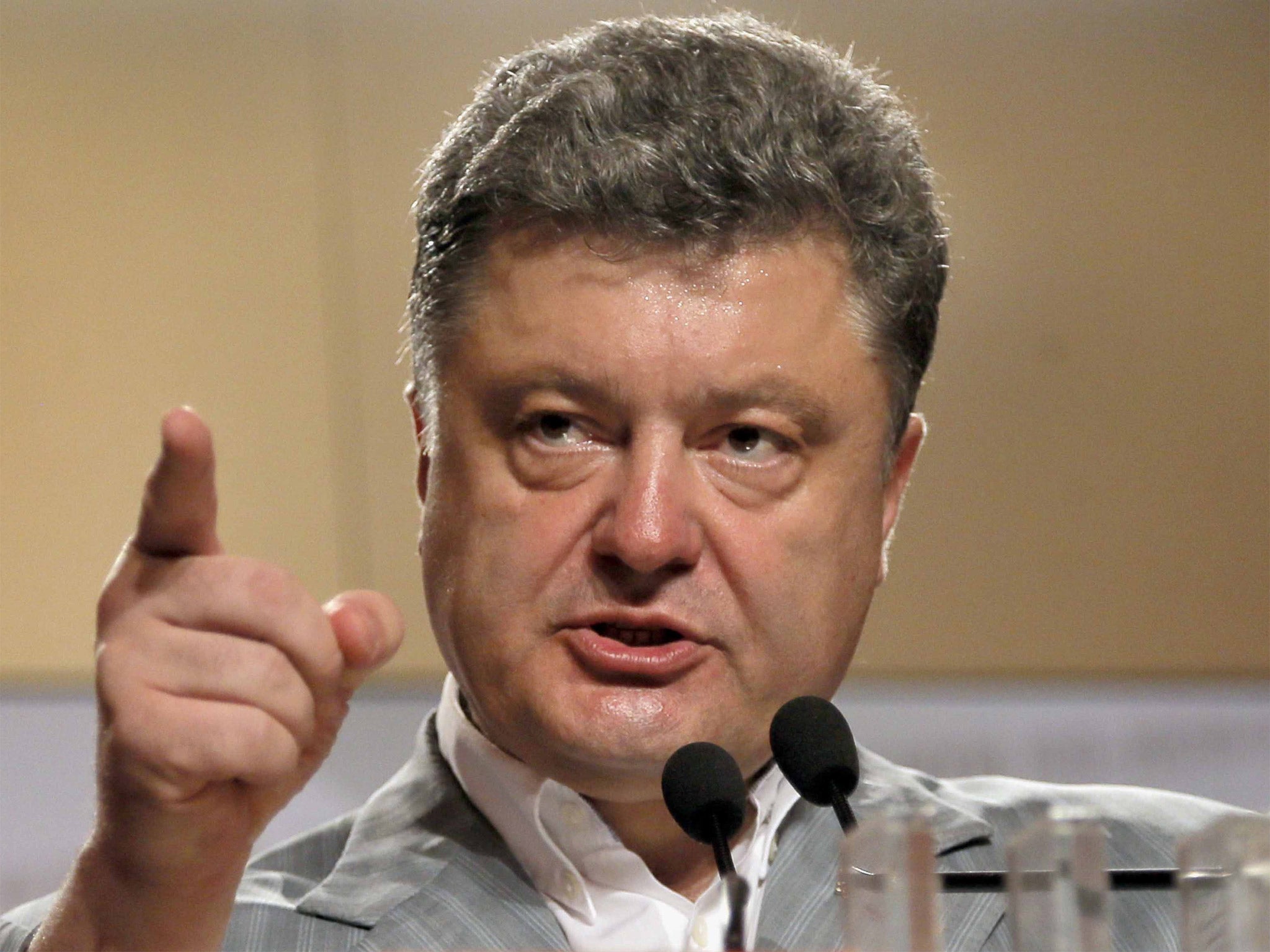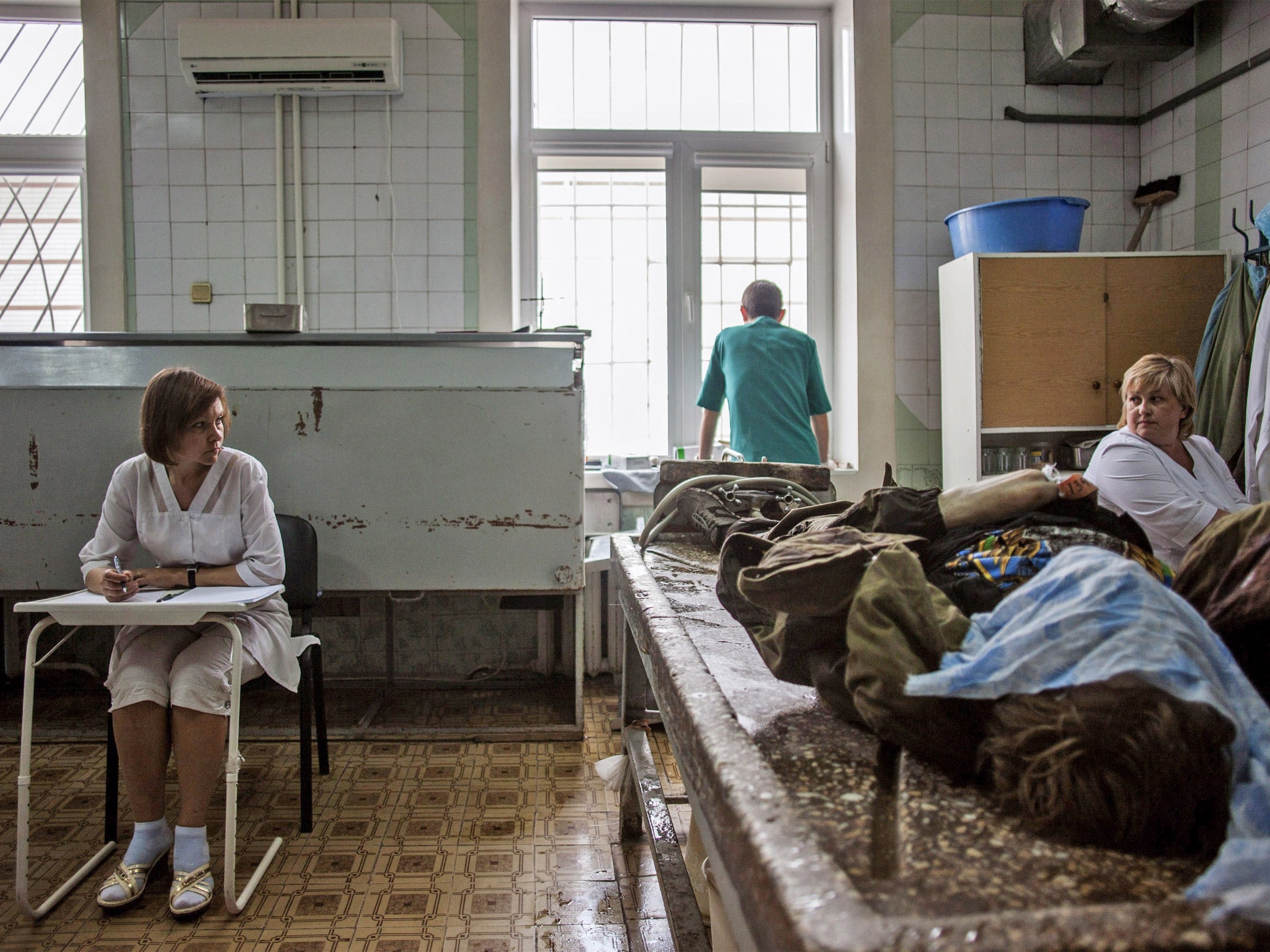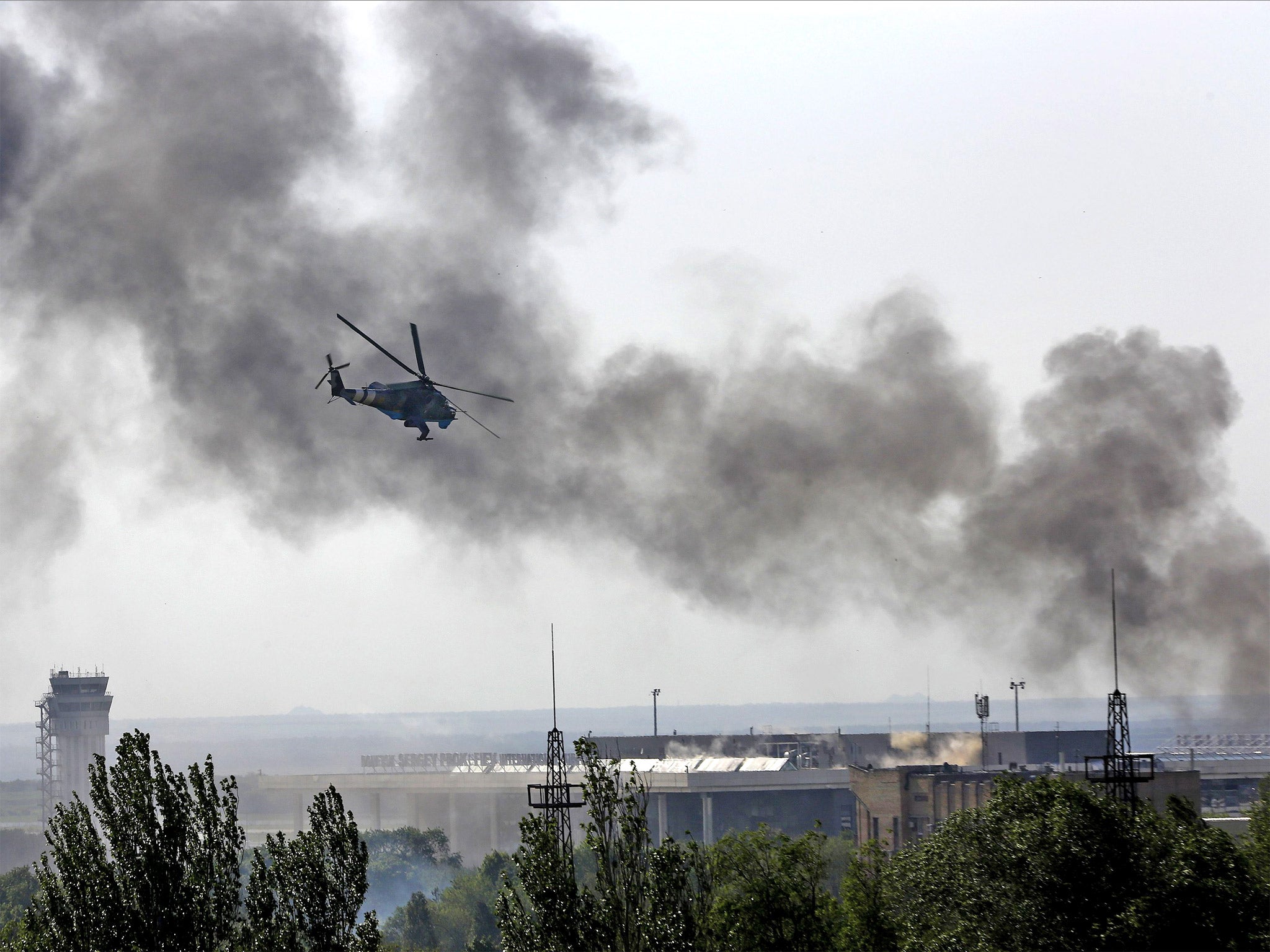Ukraine crisis: Rebels massacred as new president unleashes military in Donetsk

Your support helps us to tell the story
From reproductive rights to climate change to Big Tech, The Independent is on the ground when the story is developing. Whether it's investigating the financials of Elon Musk's pro-Trump PAC or producing our latest documentary, 'The A Word', which shines a light on the American women fighting for reproductive rights, we know how important it is to parse out the facts from the messaging.
At such a critical moment in US history, we need reporters on the ground. Your donation allows us to keep sending journalists to speak to both sides of the story.
The Independent is trusted by Americans across the entire political spectrum. And unlike many other quality news outlets, we choose not to lock Americans out of our reporting and analysis with paywalls. We believe quality journalism should be available to everyone, paid for by those who can afford it.
Your support makes all the difference.At least 40 pro-Russian separatists have been killed in clashes at Donetsk international airport as the Ukrainian military, under the command of the country’s new president, launched airstrikes on armed rebels who had stormed the terminals.
The Ukrainian government said none of its soldiers was killed in the operation, which began just hours after Petro Poroshenko was elected Ukraine’s new president. “The airport is completely under control,” said Interior Minister Arsen Avakov on Tuesday as gun and artillery fire could still be heard. “The adversary suffered heavy losses. We have no losses.”
The government assault began on Monday morning and continued yesterday. Ukrainian fighter jets and helicopter gunships strafed rebel positions around the main terminals in the fiercest assault since the conflict began in the east of the country two months ago.
Until Mr Poroshenko’s election, the Ukrainian military operation against the separatists who established a pseudo state in Donetsk and Luhansk had been largely confined to skirmishes in satellite cities and the surrounding countryside.
This week’s re-calibration of the violence brings the conflict to the city of Donetsk itself, as the new government appears to be preparing for a showdown with the rebels who seized control here in April. Donetsk was empty yesterday. Shops were closed and many had covered their entrances. Banks were imposing a limit on withdrawals. Schools, universities and courts were also closed.
On the way to the airport, on Kievsky Avenue, a smashed and blood stained army truck lay on its side on the edge of the road. Local residents gave differing accounts at what had happened but their anger was palpable. Just over a mile from the airport, police were blocking the road to the terminals and out of the city. Alongside them armed separatists were constructing more permanent barricades using chain saws to cut down trees lining the street and using sandbags, tyres and barbed wire to block the road.
“We’ve never seen anything like this in Donetsk before,” said Vladimir Olenseivitch, a lawyer, “I thought after the election Poroshenko would pause for a while, but the situation has become worse.”

Mr Poroshenko won 54 per cent of the vote in Sunday’s elections, giving him a comfortable mandate. The burly chocolate manufacturer, 48, has refused to negotiate with the separatists who he describes as terrorists, bandits and pirates.
The mood was subdued at the Government Administration building in Donetsk where the rebels have their improvised headquarters. “We came to vacate the airport with guns, hunting rifles, sticks and with our desire for freedom,” said Alexander Kishiniets, who described himself as the Commissioner of the Committee of People’s Control.
He complained that the separatist arsenal was no match for the Ukrainian army and said they would require external assistance. “We are asking for help from Russia. If not soldiers, at least weapons,” he said.
Russia has repeatedly called for Ukraine to end its military operations in the east. Last month President Putin referred to eastern Ukraine as “new Russia” and has promised to protect Russians in former Soviet Republics. However, he has softened his stance over the past week, saying he would recognise the results of Ukraine’s elections and pulling back some troops from near the border.
The Kremlin said yesterday that Mr Putin had called for an “immediate halt” to the “punitive military operation”.

Meanwhile, the Organisation for Security and Co-operation in Europe (OSCE) said that a team of its monitors were missing in the Donetsk region. Four men from Turkey, Switzerland, Estonia and Denmark were last seen at a city checkpoint at 6pm on Monday. In April seven international military observers linked to the OSCE were kidnapped by separatists and held for a week.
Subscribe to Independent Premium to bookmark this article
Want to bookmark your favourite articles and stories to read or reference later? Start your Independent Premium subscription today.
Join our commenting forum
Join thought-provoking conversations, follow other Independent readers and see their replies
Comments